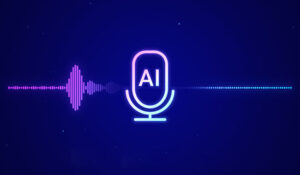Five9’s Jess Shea explores how AI will shape the future of voice in CX.
Voice has been the primary means of globally communicating with one another ever since the early days of telephony when George Willard Croy became the world’s first telephone operator in 1878.
Like all technological innovations, once the availability of a new solution is widespread, evolution happens quickly; 30 years later, during World War I, the U.S. Army called in the help of the Hello Girls, a team of operators sworn into the U.S. Army Signal Corps to help alleviate logistical pressures in communication across allied countries.
Within a year, these women were able to triple the daily number of service calls in France and ultimately, provide seamless communication experiences for the Army.
It’s safe to say the voice experience has come quite a long way since the earlier part of the 20th century. Gone are the days of switchboard operators, dialing “0” on a payphone to connect to a call, or listening to an IVR menu to figure out which department you want to speak to.
Today, AI-powered voices can be found in homes and on the other end of customer service lines across the globe, and the number of AI voice assistants is expected to reach 8 billion by 2023.
Whether it’s Siri, Alexa, or Cortana at home, or an AI assistant helping you transfer your call with your medical provider, the way we interact and connect with each other and with companies now goes hand in hand with artificial intelligence.
Regardless of how far we’ve come and how quickly this has all changed, one thing remains poignantly true: voice is not going anywhere, and companies looking to maintain customer loyalty and increase their Customer Experiences (CX) better remember that.
In fact, across multiple countries and demographics, voice is ranked as the #1 preferred method of engagement with companies, according to the Five9 2021 Customer Service Index. Whether that voice is from a virtual agent or human, customers want to communicate their request verbally, especially for their urgent issues.
A voice is as unique as a fingerprint. Accent, tone, pitch, speed, inflection, and intonation all make up the uniquely human qualities in voice. These factors are important for meeting customers’ needs for more human experiences when engaging with a company—even if they are speaking with an AI-powered virtual agent.
An Intelligent Virtual Agent allows companies to provide a unique voice experience via self-service. By enabling the creation of extremely lifelike custom voice avatars, synthesized from human voices, IVAs allow companies to truly think about and identify what the voice of their brand is.
Think about that for a minute. Companies can now enable their own version of Amazon Alexa or Siri and essentially choose the personality and voice of their brand. This is a game changer in the world of brand differentiation.
Customers want to recognize the voice on the other end of the line. They want to feel like they are in the company of an empathetic, caring individual. This is now possible through AI and automation.
Gone are the days of connecting through a switchboard or pressing 4 to get to the right department. The era of human-like, AI-powered self-service is here.
Only time will tell what the future of the voice experience is, but for now, this is certain: companies that do not take their voice experience seriously will be remembered like the black and white photos of switchboard operators.
This blog post has been re-published by kind permission of Five9 – View the Original Article
For more information about Five9 - visit the Five9 Website
Call Centre Helper is not responsible for the content of these guest blog posts. The opinions expressed in this article are those of the author, and do not necessarily reflect those of Call Centre Helper.
Author: Five9
Published On: 24th May 2022
Read more about - Guest Blogs, Five9







 Five9 empowers organizations to create hyper-personalized and effortless AI-driven customer experiences that deliver better business outcomes. Powered by Five9 Genius AI and our people, the Five9 Intelligent CX Platform is trusted by 3,000+ customers and 1,400+ partners globally. The New CX starts here and it's at the heart of every winning experience.
Five9 empowers organizations to create hyper-personalized and effortless AI-driven customer experiences that deliver better business outcomes. Powered by Five9 Genius AI and our people, the Five9 Intelligent CX Platform is trusted by 3,000+ customers and 1,400+ partners globally. The New CX starts here and it's at the heart of every winning experience. 









